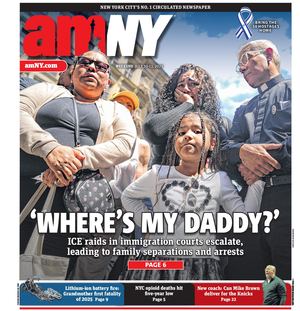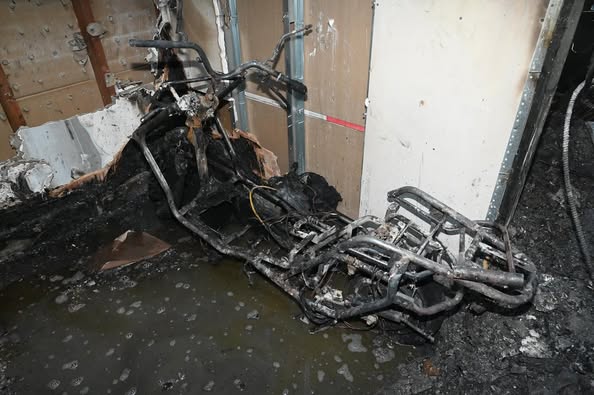By Deborah J. Glick
I am proud to represent an Assembly district which traditionally has one of the highest levels of voter turnout in the city and state. Residents in my district also tend to be very active in political campaigns. Despite this high level of involvement, many individuals are not familiar with the ballot initiatives on which they will vote next week. This lack of knowledge often stems from people’s difficulty in getting information about and subsequently understanding the initiatives. Below, I outline these ballot questions and provide my thoughts on them, with the hopes that this information will better prepare you to make educated votes on them.
Question #1: Amending the state budget process
This measure would amend the New York State Constitution to enact bipartisan legislation to make the state budget process more efficient and increase accountability to the public. Among other things, this reform package would allow more time for the governor and Legislature to negotiate a budget by requiring an earlier submission of the governor’s budget and changing the start of the fiscal year from April 1 to May 1. This change would respond to the reality that we are currently working within the same time limits that were set decades ago, despite the fact that New York State today has one of the country’s shortest timeframes for enacting one of its largest budgets.
In addition, this ballot proposal would allow for a contingency budget that would automatically go into effect if the governor and Legislature do not reach a budget agreement by the deadline. To increase oversight, an Independent Budget Office would also be created to provide the Legislature and public with detailed budget information. These are important, sensible changes that will allow for greater collaboration and transparency in the state budget process. I recommend a YES vote on Question #1.
Question # 2: Transportation Bond Act
In order to meet the current and future challenges facing New York State’s transportation system, a substantial infusion of funds is needed. While the state lacks the requisite cash to address these needs, the Transportation Bond Act will allow the state to borrow $2.9 billion for making a variety of important improvements to maintain the Metropolitan Transportation Authority’s public transportation system, as well as badly needed repairs to roads and bridges throughout the state, including many in New York City. Of this money, $450 million will allow for improved tunnel lighting, a bus locator system, track replacement and the purchase of new subway cars and buses, including environmentally friendly alternative-fuel buses. In addition, a $450 million boost will be given to both the long-awaited Second Avenue subway and the East Side Access project (which will bring Long Island Rail Road trains to Grand Central), making it almost certain that these two projects will finally be realized.
Understandably, many New Yorkers are wary of increasing the state’s debt. However, the Transportation Bond Act is a sound investment. Unlike other kinds of debts, the bond act will be issued only for capital purposes and will provide a long-term asset for the state. In addition, while many individuals have been justifiably critical of the M.T.A.’s operations and may be reluctant to authorize increased funding to it, failing to approve the bond act will only exacerbate the M.T.A.’s problems. If the bond act is not approved, the M.T.A. will be forced to decide between not making essential repairs and improvements to address safety and efficiency issues in the transit system or making these changes through fare increases or backdoor, unchecked borrowing by the M.T.A. It is likely that either of these alternatives will result in the state’s forgoing billions of dollars in matching federal funds for the transit system. I recommend a YES vote on Question #2.
Questions #3 and #4 come out of yet another Mayoral Charter Revision Commission. Both items seem well intentioned, but the net effect is extending the power of the mayor, which is unnecessary for the purposes below.
Question #3. Establishing an ethics code for hearing officers
This proposal would amend the City Charter so that the mayor would establish a code of ethics for administrative hearing officers, who are responsible for adjudicating violations of the city’s laws and regulations, such as parking tickets, noise complaints and building code violations. Presently, there is no code of conduct for these officers.
Though it is important that there be meaningful standards and enforcement for the behavior of hearing officers, a ballot initiative is not the appropriate avenue for doing so. In addition, if approved, this measure would leave it to the mayor to set the standards, shifting power from the City Council. I recommend a NO vote on Question #3.
Question #4: Adding financial management requirements in the City Charter
This measure would make into law a provision mandating that the city balance its budget using generally accepted accounting principles and that it utilize these principles for the city’s annual audit of its accounts. In addition, each year the mayor would be required to develop a four-year financial plan for the city and maintain a general reserve fund of at least $100 million.
The Financial Control Board currently mandates that the city take the above actions, but the F.C.B. will cease to operate in 2008. Again, it should be an independent entity, not the mayor, that ensures the standards for full disclosure that a mayor must meet. I recommend a NO vote on Question #4.
Glick is the assemblymember for the 66th Assembly District (Greenwich Village, Soho, Noho and Tribeca).





































